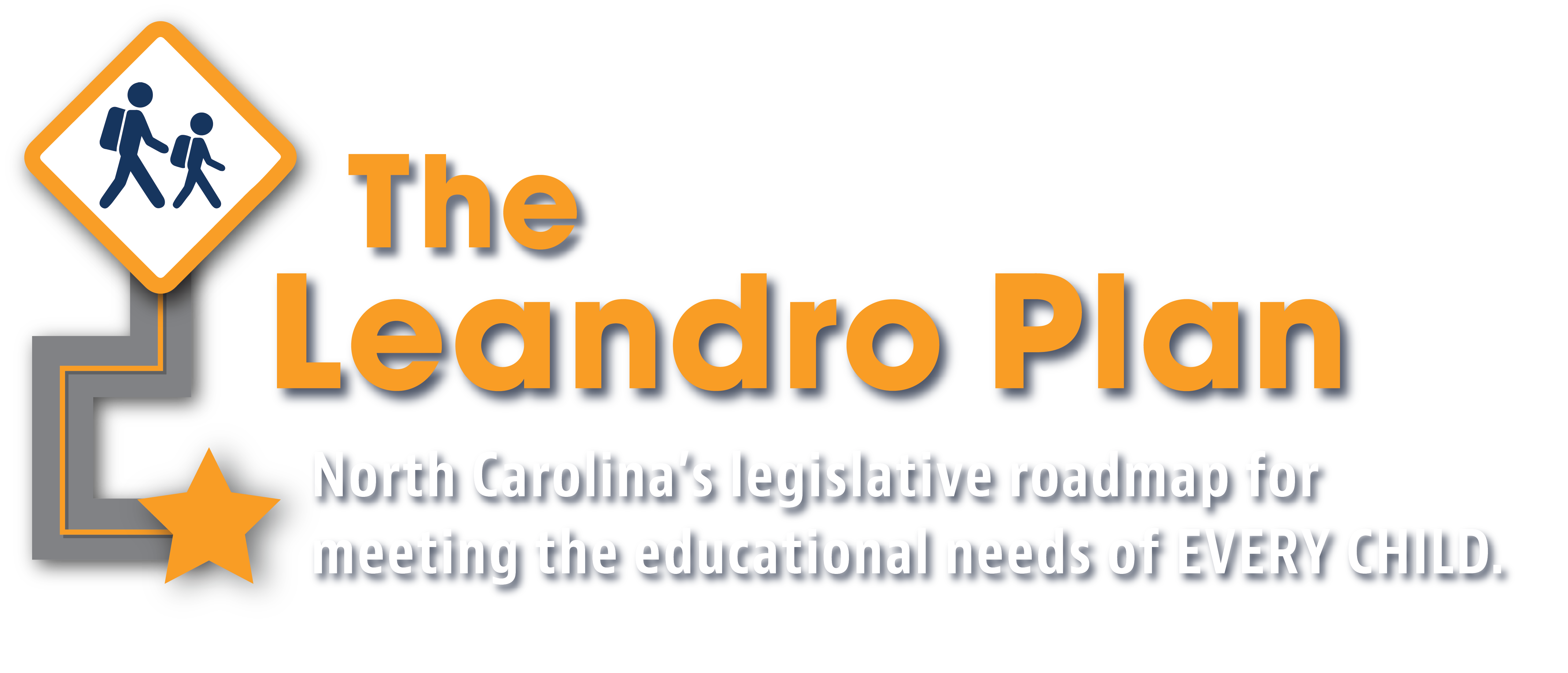How does the Leandro Plan benefit multilingual learners?


The number of these students has grown by 31 percent in the past four years and now comprise more than 8 percent of all public school students.
Unfortunately, language barriers create significant educational obstacles for children learning English and their families – barriers that have been left unaddressed and under-resourced in North Carolina. As a result, multilingual learners continue to substantially lag their peers on standardized tests. The state has been unable to meaningfully narrow opportunity gaps for these students, partially due to insufficient resources.
In the most recent year of state testing, only 28 percent of multilingual learners in grades 3-8 achieved proficiency on the state reading assessments compared to 57 percent of all students. Similarly, only 34 percent of multilingual learners in grades 3-8 achieved grade-level proficiency in mathematics compared to 59 percent of all students.
Multilingual learners are also under-represented in gifted programs, comprising less than 1 percent of enrollments. The graduation rate for multilingual learners in North Carolina is among the worst in the country, with just 58 percent of multilingual learners graduating from high school compared to the state’s total graduation rate of 87 percent.
a schedule of polices to be adopted by the North Carolina legislature that eliminate the inequities and funding deficiencies that block children from receiving the sound, basic education guaranteed by the state constitution.
Substantial increases in supplemental funding for limited English proficiency
Supplemental funding for limited English proficiency will be more than tripled under the Leandro Plan, rising from $100 million to approximately $325 million. Currently, the supplemental funding allotment is just 12 percent of the base amount the state provides on behalf of all students. Most other states provide substantially more, with the most common supplemental amount at 50 percent.
Simplifying the limited English proficiency funding formula and eliminating arbitrary eligibility and funding caps
The Leandro Plan will simplify the funding formula for the limited English proficiency allotment and better align funding with students’ needs. Additionally, the plan eliminates the arbitrary eligibility requirements and funding caps to ensure that all English learners generate the resources necessary to support their education.
Modifying the funding formula to account for the number of languages
In future years, the state will re-examine the limited English proficiency allotment formula to provide additional resources to account for the increasing linguistic diversity of a district’s English learner population.
Expanding NC Pre-K access
In addition to dramatically expanding the NC Pre-K program, the state will examine policies and practices to ensure equality of access for communities whose first language is not English.
Providing funding to increase the number of support personnel, such as school nurses, psychologists, counselors, and social workers
Increasing the number of support personnel will allow schools to better meet the social-emotional, behavioral, and physical health needs of their students. Multilingual learners disproportionately lack access to physical and mental health services. They also tend to require more services due to greater exposure to adverse childhood experiences and exposure to health-compromising pollutants.
Funding for professional development
The Leandro Plan will restore funding for professional development, allowing teachers, school leaders, and other staff opportunities to reflect on and revise practices to support multilingual learners.
Overall funding increases and spending flexibility
The additional resources and spending flexibility provided under the Leandro Plan will allow schools to adopt proven strategies to support multilingual learners and native speakers alike. Dual-language immersion programs, culturally-affirming curricula, and outreach to parents who are non-native speakers are all proven programs that will help maximize a community’s resources for student growth.
explore other student populations

Communities for the Education of Every Child NC

Comunidades para la Educación de Cada Niño NC
We are a community-led, statewide coalition of organizations, parents, teachers, and students who advocate for every child’s constitutional right to a sound basic education.
